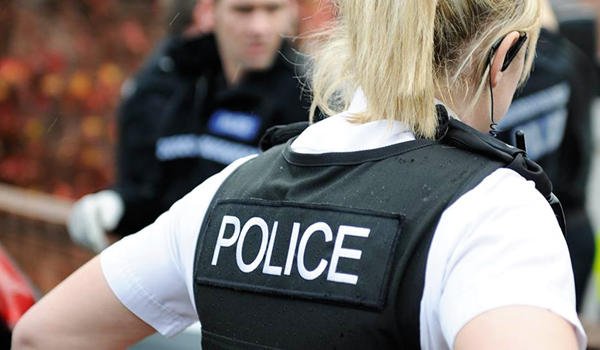Identity crisis
The attack on London may have speeded up the introduction of a national ID system as a method of countering terrorism. Mat Hanrahan assesses how effective it would be.

The last time an ID card was introduced in Britain the country was at war. The plan in 1939 was to provide a degree of control over both movement and the consumption of resources, and citizens were expected to present it when they picked up their ration books and when requested to by the police. Winston Churchill eventually scrapped the scheme in 1952.
Although two decades of terrorist activity by the Provisional IRA (PIRA) were not enough to convince the public of the need to re-introduce the scheme, the terrorist atrocities of 9/11 brought about a change in mood. Once plans for an entitlement card were put forward in 2002, successive polls suggested that the general public welcomed the idea while an increasingly vocal opposition maintained the scheme marked a decline towards an authoritarian state. Since New Labour secured re-election in 2005, the argument has been dominated less by principle and more by cost. Government estimates of cost per citizen has risen to £93 for each card, while other interested parties maintain the real cost to the tax payer would be more than £300.
With the terrorist attack on Londons public transport system, commentators are now suggesting opposition to the scheme has weakened and the bill will be passed onto the statute books by the autumn. Yet even the briefest analysis of the recent history of terrorism in the UK raises doubts about the role the ID cards could play in the war on terror.
The story of Kemal Bourgass, the Algerian who stabbed to death Det Con Stephen Oake in Manchester, and who was later sentenced to 17 years for plotting ricin attacks in London, is typical. Bourgass arrived in the UK in 2000 and applied for asylum, one year before 9/11 and the Immigration Nationality Directorate (IND) decision to start collecting fingerprints of asylum seekers.
Bourgass absconded without leave when his asylum case failed, only to resurface again in 2002 when he was arrested for shoplifting. Bourgass who, it later transpired, regularly used four false IDs provided a name to the arresting officer but refused to provide an address. The IND was contacted but had no record of the name supplied, and advised the police to fill out a form recommending the court to consider detention or deportation. Bourgass was subsequently fined but then released back into the community without any further contact with the IND.
In the kind of ideal world depicted within glossy corporate brochures, the arresting officer would have been able to submit the suspects fingerprints to a common centralised service that would have made a positive match with the set held at the IND. With the match established, Bourgass status as a failed asylum seeker would have been flagged and automatically delegated to a contact within the IND, and then escalated to another contact should it not have picked up within a set period of time. Meanwhile, should the suspects details have conformed to any of the set of risk profiles of current anti-terrorism unit policy, the appropriate details could be collected, authorised and automatically passed on to the agencies with the relevant clearance.
The establishment of the Asylum Registration Card (ARC) and its supporting database in 2002 has gone some way in providing a unified set of standard information about asylum seekers using the same model of card and register proposed for national ID. Critics of the national scheme maintain that this separate card undermines the Home Office case for national ID providing active assistance to immigration departments. But a card in itself does not guarantee safety.
It has been reported that security experts believe that the London attack was the work of homegrown terrorist cell outside of the known international networks. Unlike Bourgass, it may be the case that these terrorists could rely on a legitimate social and economic network to move freely about the country. They may also be legally entitled to a national ID card. Should these individuals be prepared to take part in a suicide strike it is unlikely they would b



